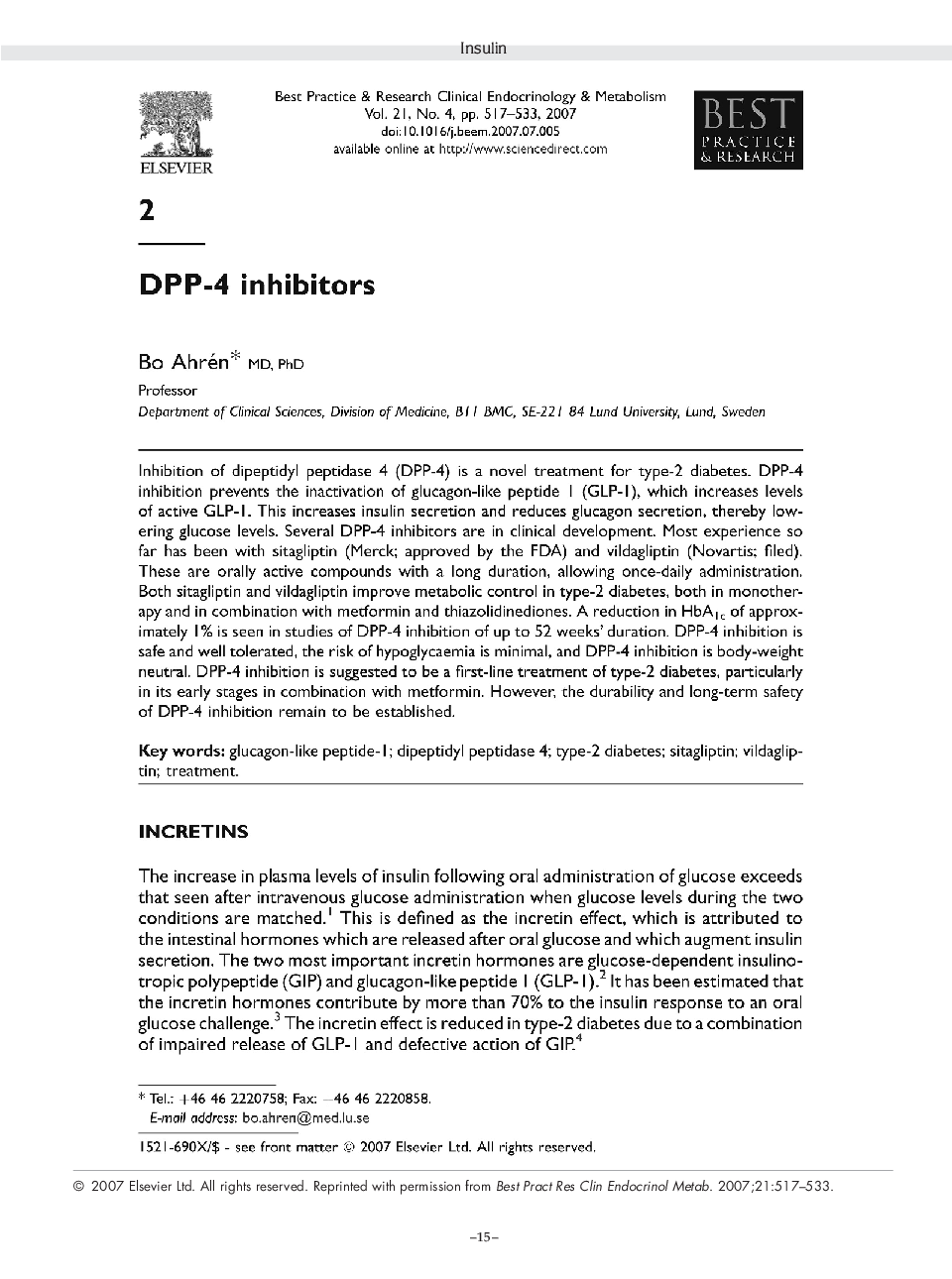| Article ID | Journal | Published Year | Pages | File Type |
|---|---|---|---|---|
| 2803755 | Insulin | 2009 | 17 Pages |
Inhibition of dipeptidyl peptidase 4 (DPP-4) is a novel treatment for type-2 diabetes. DPP-4 inhibition prevents the inactivation of glucagon-like peptide I (GLP-I), which increases levels of active GLP-I. This increases insulin secretion and reduces glucagon secretion, thereby low-ering glucose levels. Several DPP-4 inhibitors are in clinical development. Most experience so far has been with sitagliptin (Merck; approved by the FDA) and vildagliptin (Novartis; filed). These are orally active compounds with a long duration, allowing once-daily administration. Both sitagliptin and vildagliptin improve metabolic control in type-2 diabetes, both in monotherapy and in combination with metformin and thiazolidinediones. A reduction in HbAIc of approximately 1% is seen in studies of DPP-4 inhibition of up to 52 weeks' duration. DPP-4 inhibition is safe and well tolerated, the risk of hypoglycaemia is minimal, and DPP-4 inhibition is body-weight neutral. DPP-4 inhibition is suggested to be a first-line treatment of type-2 diabetes, particularly in its early stages in combination with metformin. However, the durability and long-term safety of DPP-4 inhibition remain to be established.
